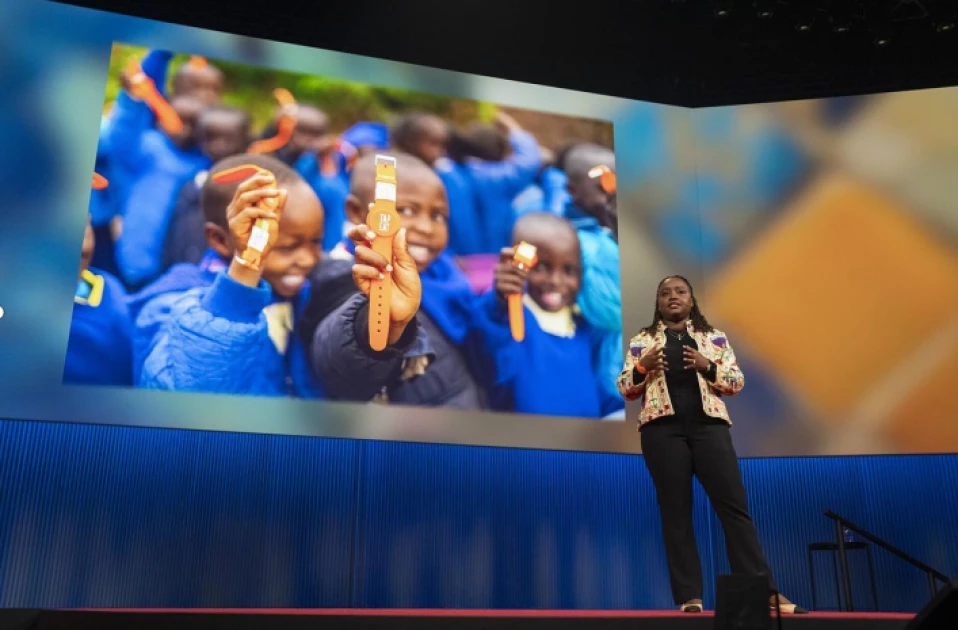Wawira Njiru’s TED Talk puts Kenya’s school meals at the heart of global solutions

Founder and CEO of Food4Education, Wawira Njiru, speaking on TED Talk. PHOTO | COURTESY

Audio By Carbonatix
From feeding 25 children in a makeshift kitchen to powering
over 500,000 meals daily, Wawira Njiru’s journey is now centre stage on the
global platform of TED, a resounding testament that African-grown solutions are
not only thriving but also leading.
In her just-released TED Talk titled "From Origin to
Opportunity", the Founder and CEO of Food4Education reflects on a movement
that has transformed Kenya’s school feeding landscape and is now inspiring
change across the continent.
She delivered a powerful message dubbed, “Africa is not waiting for answers, it’s creating them.”
Njiru said, “School feeding isn’t charity, it’s strategy, it’s infrastructure. It’s how we nourish children, support farmers, strengthen education, and build systems that last."
Her philosophy now finds full expression in Dishi Na County, a
program launched in partnership with Nairobi County Government under Governor
Johnson Sakaja, which delivers hot, nutritious meals to more than 310,000
public school pupils in all 17 sub-counties.
The program relies on a hybrid funding model, government
support, parent micro-payments via mobile platforms, and philanthropy — and
mirrors Food4Education’s wider blueprint for sustainable school feeding.
Last year, eight new centralised kitchens were
launched in Nairobi, part of 17 kitchens planned across the county,
further scaling the Dishi Na County program.
The green kitchens run on clean energy, employ thousands, and
source produce from local smallholder farmers, creating a full-circle impact
from field to classroom.
“We’ve created a sustainable solution that shows Africa isn’t
just solving its own challenges – we’re setting precedents the world can learn
from,” Njiru told TED viewers, highlighting how the initiative grew by
investing in “African ingenuity, community ownership, and public partnership.”
A cornerstone of the program’s success is Tap2Eat, a digital
platform allowing parents to make micro-payments via mobile money for subsidised
meals.
It’s a low-cost, high-impact tech solution that brings dignity
and accessibility to school feeding — no long queues, no stigma, just a quick
tap and a full plate.
“This streamlined and efficient process ensures a quick and
easy way for students to access meals and contributes to the overall success of
Food4Education’s mission,” said Njiru, emphasising the intersection of
technology, dignity, and scale.
The movement’s global resonance was further reinforced at the UN summit, where Food4Education was cited as a flagship intervention in Kenya’s national report on sustainable food systems.
TED2025’s theme, Humanity Reimagined, couldn’t be more fitting. Wawira’s story, and Kenya’s example, challenge conventional narratives and frame school feeding not as a social handout but as a strategic investment in a generation.
With Africa projected to account for 1 in 4 people globally by
2050, how the continent feeds its children today, Njiru argues, will determine
the world’s tomorrow.


Leave a Comment